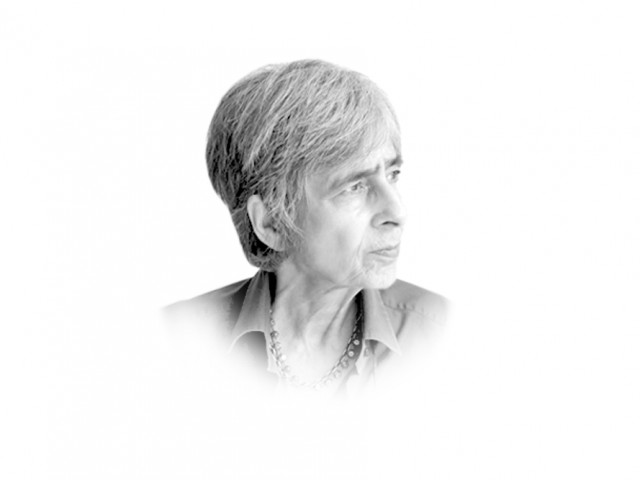The flayed province
Instead of indignation, Pakistan, its government should be ashamed of their treatment of Balochistan.

One of the noxious smells, amongst the many, now emanates from Balochistan — or rather from the Islamic Republic’s attitude towards this member of the so-called federation. It has been on the boil forever, since the creation of Pakistan and on occasions has spilled over as it did for the umpteenth time since 2006. And we all know the reasons why, so to repeat them would be futile.
Much has been written on Balochistan, of late, provoked by a bill submitted by a US congressman over that conflict and crisis-ridden province — the latest diversion from the iniquitous doings of this present government.
Dana Rohrabacher’s resolution calling for Balochistan’s right to self-determination might have sunk into oblivion (as do many bills put before Congress), but it was leapt upon by the Pakistani media — and described by Pakistan’s ambassador to the US as a provocation that “will severely impact Pakistan-US relations”. Pakistan’s ambassador to the UN termed it contrary and in infringement of many UN charters, quite forgetting how the state of Pakistan itself has shattered dozens of US charters and international laws in its treatment of the province of Balochistan.
The government and media have jumped up and down in righteous indignation at the temerity of a lone Congressman to voice his position on one of the many foreign affair issues in which the US is involved. And the government, media and the foreign office have gone into overdrive — the last mentioned twice summoning the deputy US ambassador to vent its wrath.
Strange, that for one, none seems aware of the workings of US Congress. The US embassy in Islamabad tried to explain that members of Congress are in the habit of introducing legislation on all sorts of topics and such legislation in no way implies US government endorsement.
Now, rather than indulging in high dudgeon and indignation, Pakistan, its government and all those who have any say should have been deeply shamed — thoroughly shamed — by the fact that the treatment meted out to the people (probably less than 10 million) who inhabit 43 per cent of the land mass of Pakistan, has been so foul and cruel that it is attracting the attention of international human rights organisations and members of the legislature of Master USA.
We await the next diversion, but meanwhile, nothing is likely to happen to alleviate the plight of the unhappy province of Balochistan. The Balochistan package was an eyewash. The APC, if it comes into being, will be but another useless flash in the empty pan that is Pakistan’s political situation.
To end, a paragraph from Lieven’s book, from his chapter on Balochistan: “The Pakistani approach has generally been the same in essence but different in form. It is summed up in the remarkable fact that, as of 2009, out of sixty-five members of the Baloch Provincial Assembly, sixty-two were in the provincial government as ministers, ministers without portfolio of advisers with ministerial rank. Nor did the remaining three deputies constitute much of an opposition. Two had not occupied ministerial chairs by virtue of being dead .... The third cannot visit Quetta because of the blood feud with the chief minister... This is the sort of thing which has led me to place the word ‘democracy’ in this book in inverted commas...”.
Published in The Express Tribune, February 25th, 2012.
















COMMENTS
Comments are moderated and generally will be posted if they are on-topic and not abusive.
For more information, please see our Comments FAQ